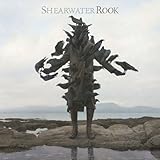A friend wondered aloud why psychics always seemed to be women. It’s not a question I had ever considered, but it made sense once I paused to think about all the psychics I had ever seen in pop culture. They were all women. The archetype for me is the gypsy fortuneteller in “The Wolf Man,” condemning poor Lon Chaney, Jr. to a lifetime curse of moonbeams and a mouthful of bloody canines.
It’s not that men who predict the future don’t appear in mythology, folklore, and modern popular culture. It’s that they predict a different kind of future than psychics. Women psychics are called upon to foretell intensely personal, private dramas: future loves, distant health crises, far off financial success or ruin.
Somehow it has happened that men in the popular imagination who see the future are prophets, who speak of widespread tumult affecting everyone: war, famine, disease. Unlike a female psychic, whose foresight is restricted to the intimate inner lives of her patrons, the male prophet operates in the public sphere, telling the entire nation or world where it is bound.
The anonymous gypsy soothsayer versus the revered Nostradamus, the Delphi Oracle versus the Book of Revelation’s Paul, Dionne Warwick and the Psychic Friends Network versus Edgar Cayce. It’s the same pattern every time.
The Psychic/Prophet dichotomy is essentially a reworking of the socially delimited options traditionally available to women and men in European and American culture. Women are confined to the private realm (the family and household), while men dominate in the public realm (national governance and defense). These narrowly defined roles apply not only to the actual constructive maintenance of the social fabric, but also to the virtual work that psychics and prophets perform.
Something else to consider: judging from my limited experience, psychics often foresee a karmic world in which balance is restored, a redemptive future where a window opens for every door that closes. A job loss leads to an exciting, fulfilling career path. A heartbreak gives way to a true love. Life-threatening illness paves the path toward enlightenment. Prophets, however, warn us with zero-sum propositions, with clear losers and winners, stark differences between right and wrong, where equilibrium is not the outcome but a sense of justice is.
Now here’s a crude essentialist thought: is this difference in vision between a world restored to its communal spirit and a world riven in two the difference between the way women are taught and expected to interact with the world (by nurturing it) and the way men are taught and expected to interact with the world (by dividing it)?
